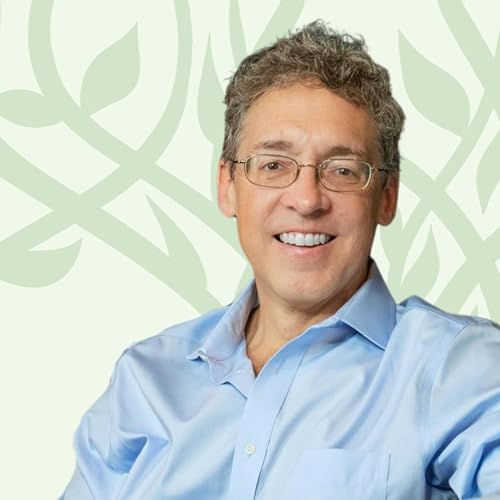Episode Highlights "When we laugh, when we are sitting in delight, it expands–It not only keeps us in our window of tolerance, but it expands our window of tolerance." "We also know that play is just a huge protective factor. It allows people to process their experiences, but also build skills for the future." "Play is really about doing something for the enjoyment of it, for no other reason, but for the enjoyment." "The more stress you have, the more play you need." "To hold multiple emotions that more than one thing was true... gives us tremendous capacity to be resilient and have more mental and cognitive, flexibility as well as emotional flexibility." Helpful Links and Resources Books by Dr. Tina Bryson The Way of Play (Tina’s latest book!) The Whole-Brain Child No-Drama Discipline The Yes Brain The Power of Showing Up Follow Tina Bryson: TinaBryson.com Instagram X The Center for Connection Show Notes The importance of play for human development across the lifespan, noting that even mammals engage in it. How play keeps us in receptive, thriving states and expands our window of tolerance for frustration and discomfort. The crucial relationship between stress and play: the more stress in our lives, the more we need play to counterbalance it. The distinction between free unstructured play for children and dyadic, child-led relational play. Addressing common parental challenges with play, such as not knowing how, finding it boring, or children's resistance. Introduction to Tina's new book, “The Way of Play,” co-authored with Georgie Wisen-Vincent, which offers seven strategies for parents to engage in child-led play for brain integration and relationship building. Defining play for adults: doing something purely for enjoyment, not productivity (e.g., pickleball, running, decorating, thrifting, watching "trashy TV"). The significance of being playful in our manner – adding silliness, lightness, and sharing funny videos for shared laughter and connection. How play serves as a powerful tool for emotional regulation and processing, allowing individuals to "try on" difficult emotions in a safe, controlled context. The capacity to hold multiple emotions simultaneously (e.g., discomfort and fun), fostering resilience and mental/emotional flexibility. The impact of even "little moments" of play in creating significant connections, especially after separations. The concept of mutual delight in play and the importance of following what lights up both individuals. Tina's personal insights into her own playful activities, including her love for organizing and systematic approaches. Dr. Jill Westbrook’s Key Takeaways Play is important throughout our life spans because the positive emotions it elicits expand what Tina calls our window of tolerance. We get better at avoiding the rigidity and chaos that can plague our relationships. The more stressful our lives are, the more we need to play. Having playfulness in life is as important as actually playing. So, adding play to your life doesn't mean that you have to schedule any particular time for play. Laughing, sharing funny videos, lightening things up a bit are all part of play. Playing with children is vital for their development, and for those of us with young people in our lives, finding time to do something fun with them helps us all thrive. Tina's new book “The Way of Play” offers practical advice and teaches strategies so that all of us can get more comfortable playing. About the Thrive Center Learn more at thethrivecenter.org. Follow us on Instagram @thrivecenter Follow us on X @thrivecenter Follow us on LinkedIn @thethrivecenter About Dr. Pam King Dr. Pam King is Executive Director the Thrive Center and is Peter L. Benson Professor of Applied Developmental Science at Fuller School of Psychology & Marriage and Family Therapy. Follow her @drpamking. About With & For Host: Pam King Senior Director and Producer: Jill Westbrook Operations Manager: Lauren Kim Social Media Graphic Designer: Wren Juergensen Special thanks to the team at Fuller Studio and the Fuller School of Psychology & Marriage and Family Therapy.
Voir plus
Voir moins
 58 min
58 min Feb 16 202650 min
Feb 16 202650 min Feb 9 202658 min
Feb 9 202658 min 55 min
55 min 55 min
55 min Jan 12 20262 min
Jan 12 20262 min 17 min
17 min 29 min
29 min
